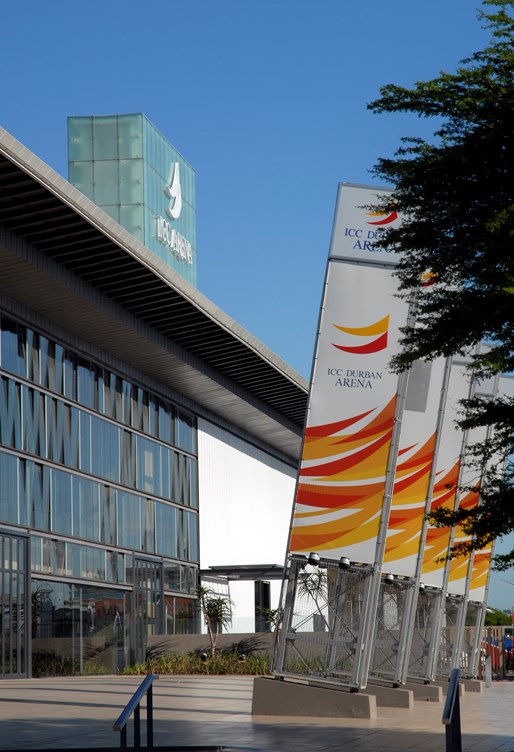Learning from history? Durban’s 2020 Olympic Bid

Durban hopes to host the 2020 Games. Photo: The International Convention Centre in Durban (picture) which will host the 123rd IOC session in 2011 (c) Graeme Williams, www. mediaclubsouthafrica.com
10.09.2010
By Miko SchneiderOn September 7, SASCOC announced that the internal bidding process was closed, and Durban was the only South African city to submit an application. It is now up to the government to decide whether to submit a formal bid to the International Olympic Committee (IOC) for the 2020 Games, following ‘extensive investigation and feasibility studies’ in Durban.
Added leverage for Durban’s 2020 chances, should national and provincial governments go ahead with the formal bid, is that the city is hosting the 123rd IOC Session in 2011.
The 2010 World Cup Local Organising Committee chairperson, Danny Jordaan, as well as the South African tourism industry, publically support Durban’s 2020 bid. On the ground, the mood seems optimistic that South Africa can augment its own glowing record. But what are the implications of an Olympic bid for the Durban Metro?
Durban’s Achilles heel
Durban’s stadium has been transformed to world-class standards, but the sheer size of a tournament such as the Olympics might prove problematic for the city. Its size (approximately 3m population) is small, comparative to cities such as London and Beijing.
Then there is the logistical challenge of housing 10,000 athletes and convening competitions in 28 sports. Match days during the World Cup 2010 were reported as crippling for locals attempting to get to and from work, and major rail system and airport upgrades will need to occur. Repeated industrial action in Durban, especially the docklands strikes that were seen just before the 2010 World Cup, might be the Durban bid’s Achilles heel.
On the plus side, the subtropical climate will ensure that the southern hemisphere winter will be warm – the coastal city averages around 320 sunny days a year, and athletes will not have to contend with altitude adjustment.
Upgrades needed to meet Olympic standards
The main hub of the Games would be the Kings Park sports precinct, which includes the new 85,000-seater Moses Mabhida Stadium that can facilitate a 10 lane athletics track around the pitch, an Olympic-sized swimming pool, an additional athletics track, golf courses, a cycle track, baseball fields, and nearby lagoons and beaches. However, these facilities will need to be substantially upgraded to meet rigorous Olympic standards.
Has Durban learnt its lesson with regard to the uncanny ability of initial cost estimates to rapidly multiply? The cost of the Moses Mabhida Stadium alone escalated from an estimated €2.8m to €3.6m in the final analysis.
Julie-May Ellingson, head of Durban's Strategic Projects Unit and 2010 Programme, reported that Durban was confident it would be able to cover the cost of its World Cup infrastructure and stadium maintenance. But Durban ratepayers might be left to foot the bill, for example, if the stadium fails to make a profit.
The costs of hosting a Soccer World Cup and the costs of hosting the Olympic Games, however, are not comparable. Almost every Olympic host city is left in debt. Whether the national government will prioritise spending in other areas, after weighing up the outcome of the 2010 World Cup, remains to be seen.





